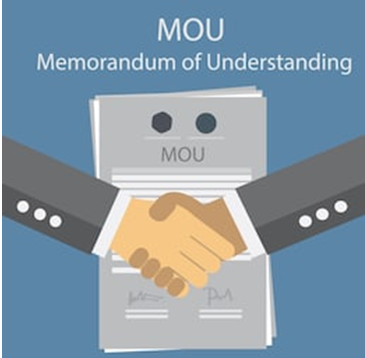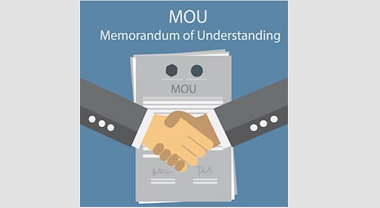Significance of MOU for Protecting Business Interests
Introduction:
A Memorandum of Understanding (MoU), is a written down document of the understanding between two or more parties regarding future associations or ventures. However, the MoU document, being a guideline agreement than a contract, has no legal binding on the parties agreed. It is essentially a preliminary agreement between parties that strive to work on a common objective and forms a base for entering into a formal agreement at the later stages. Though not a strict rule but MOUs are more often used in international treaties, merger negotiations, high stake business partnerships, etc. An MoU may be similar to a Letter of Intent (LOI). However, both are slightly different among them with LOI being more open-ended and only the proposer being signatory in LOI.

[Image Credit: Shutterstock]
Contents of MoU:
- Purpose of the MoU: Should clearly define the scope of the agreement and describe the purpose/intention for which the MoU has been created.
- Details of the parties: MoU should clearly mention the details of the parties including the organizations and/or the details of the signing persons from the said organization.
- Term of the MoU: Should clearly indicate the time period for which the MoU was valid i.e. starting and ending dates.
- Duties and Responsibilities: Should precisely specify the clear roles and responsibilities of each of the parties to the agreement and interest of the parties as well as the shared responsibilities.
- Confidentiality: MoUs must specify the confidentiality expectations from either of the parties, especially when there is a sharing of confidential matters including process documents, intellectual properties, or any other confidential information from being disclosed to the third parties.
- Termination: Parties must clearly specify the circumstances on which the MoUs can be terminated including the notice periods, mode of termination, effects of termination, etc.
- Dispute Resolution: Normally disputes relating to MoUs are resolved by means of negotiations, or by any other means that are mutually beneficial for the parties.
Advantages of MoU:
- Less complex and soft in nature in terms of the clauses and terminologies and hence can be a preferred alternative.
- Unlike contracts, does not take much time in creating MoU.
- Is not legally binding but can help in the creation of a valid and full-scale agreement.
- Becomes a valid contract only when it fulfills the requirements of section 10 of the Indian Contracts Act i.e. intention of binding of the agreed parties by using binding contractual terminologies.
- Engagements of the parties can easily be annulled in case of deviations from the terms of the MoU
- Though not legally binding, it can clearly define the objectives and expectations and records the prior agreed terms
- Provides a framework for generating a framework for future dealings forms a basis for future contract
IPLF and MoU:
Businesses should recognize the value of establishing a friendly relationship and common intention with their counterparts. MoU can be a valuable tool in the generation of beneficial relationships without legally binding the parties till there is a complete agreement of the proposed terms leading to the creation of contracts.
Though MoUs do not require contract-like clauses, there are various critical details that need to be included in MoUs based on the business obligation and would require legal prowess to draft a comprehensive MoUs. Our IPLF team comprises highly skilled and trained legal professionals to assist in the negotiation and drafting of various types of contracts as well as MoUs, which are not only mutually beneficial to all the parties involved but also protect your business interests.
Author: Govindhaswamy Srinivasan, a Principal Associate – Patents at Khurana & Khurana, Advocates and IP Attorneys. In case of any queries please contact/write back to us at support@ipandlegalfilings.com



